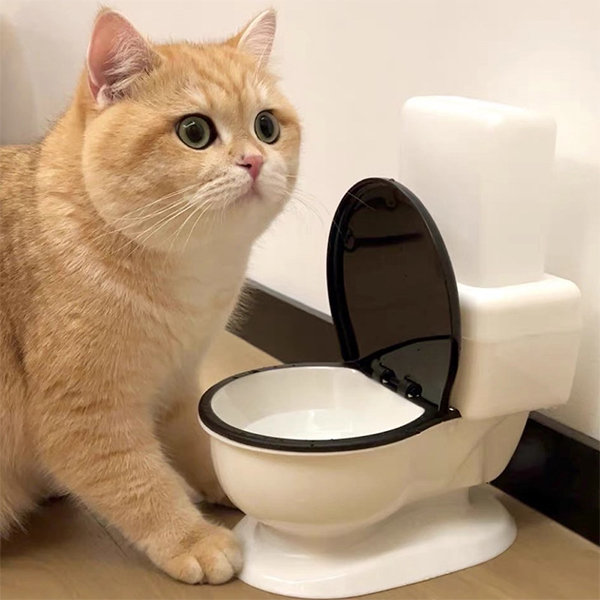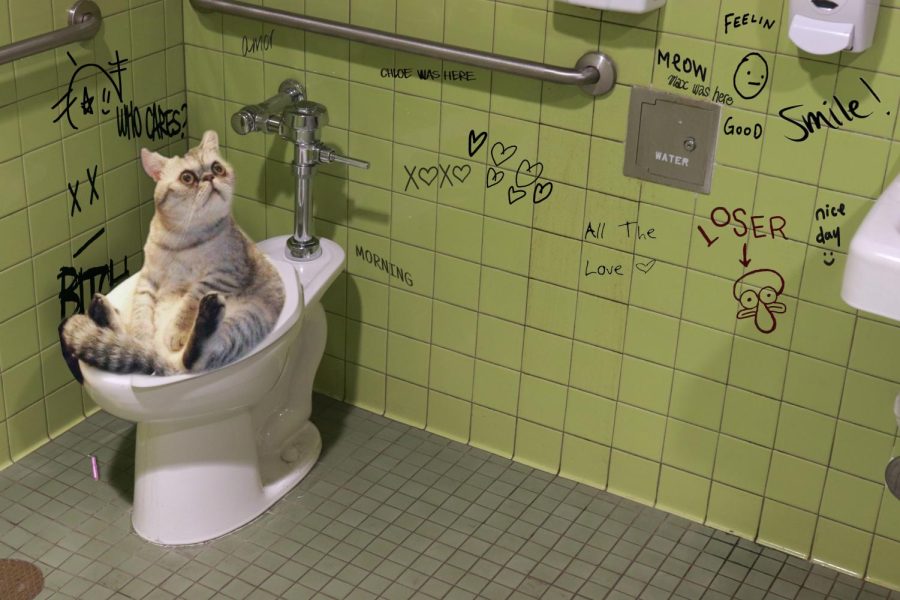Potential Risks of Flushing Cat Poop Down Your Toilet - Advice for Safer Disposal
Potential Risks of Flushing Cat Poop Down Your Toilet - Advice for Safer Disposal
Blog Article
Just about every person has got their private idea on the subject of How to Dispose of Cat Poop and Litter Without Plastic Bags.

Introduction
As cat owners, it's necessary to be mindful of just how we dispose of our feline pals' waste. While it may seem practical to flush pet cat poop down the commode, this practice can have detrimental repercussions for both the atmosphere and human health.
Environmental Impact
Flushing pet cat poop presents damaging virus and bloodsuckers into the water, posing a substantial danger to water ecological communities. These impurities can adversely affect marine life and compromise water top quality.
Wellness Risks
In addition to ecological issues, flushing pet cat waste can additionally pose health dangers to people. Feline feces might consist of Toxoplasma gondii, a parasite that can trigger toxoplasmosis-- a possibly serious disease, specifically for pregnant females and people with damaged immune systems.
Alternatives to Flushing
Luckily, there are safer and much more liable ways to dispose of feline poop. Think about the following alternatives:
1. Scoop and Dispose in Trash
One of the most typical approach of taking care of feline poop is to scoop it right into a biodegradable bag and toss it in the garbage. Make sure to utilize a dedicated clutter scoop and take care of the waste without delay.
2. Use Biodegradable Litter
Choose biodegradable pet cat litter made from products such as corn or wheat. These litters are environmentally friendly and can be safely thrown away in the garbage.
3. Hide in the Yard
If you have a yard, take into consideration burying feline waste in a designated area far from vegetable yards and water resources. Be sure to dig deep enough to stop contamination of groundwater.
4. Set Up a Pet Waste Disposal System
Purchase an animal waste disposal system especially created for feline waste. These systems make use of enzymes to break down the waste, minimizing odor and environmental influence.
Final thought
Liable pet dog possession expands past giving food and sanctuary-- it additionally entails appropriate waste monitoring. By avoiding flushing pet cat poop down the toilet and going with alternate disposal approaches, we can minimize our environmental impact and safeguard human health and wellness.
Why You Should Never Flush Cat Poop Down the Toilet
A rose by any other name might smell as sweet, but not all poop is created equal. Toilets, and our sewage systems, are designed for human excrement, not animal waste. It might seem like it couldn’t hurt to toss cat feces into the loo, but it’s not a good idea to flush cat poop in the toilet.
First and foremost, assuming your cat uses a litter box, any waste is going to have litter on it. And even the smallest amount of litter can wreak havoc on plumbing.
Over time, small amounts build up, filling up your septic system. Most litter sold today is clumping; it is made from a type of clay that hardens when it gets wet. Ever tried to scrape old clumps from the bottom of a litter box? You know just how cement-hard it can get!
Now imagine just a small clump of that stuck in your pipes. A simple de-clogger like Drano isn’t going to cut it. And that means it’s going to cost you big time to fix it.
Parasitic Contamination
Believe it or not, your healthy kitty may be harboring a nasty parasite. Only cats excrete Toxoplasma in their feces. Yet it rarely causes serious health issues in the cats that are infected. Most people will be fine too if infected. Only pregnant women and people with compromised immune systems are at risk. (If you’ve ever heard how women who are expecting are excused from litter cleaning duty, Toxoplasma is why.)
But other animals may have a problem if infected with the parasite. And human water treatment systems aren’t designed to handle it. As a result, the systems don’t remove the parasite before discharging wastewater into local waterways. Fish, shellfish, and other marine life — otters in particular — are susceptible to toxoplasma. If exposed, most will end up with brain damage and many will die.
Depending on the species of fish, they may end up on someone’s fish hook and, ultimately on someone’s dinner plate. If that someone has a chronic illness, they’re at risk.
Skip the Toilet Training
We know there are folks out there who like to toilet train their cats. And we give them props, it takes a lot of work. But thanks to the toxoplasma, it’s not a good idea.

Hopefully you enjoyed reading our piece about How to Dispose of Cat Poop and Litter Without Plastic Bags. Thanks a ton for taking the time to read through our short article. Do you know another individual who is curious about the niche? Take a moment to share it. I cherish reading our article about Don’t flush cat feces down the toilet.
Phone Report this page